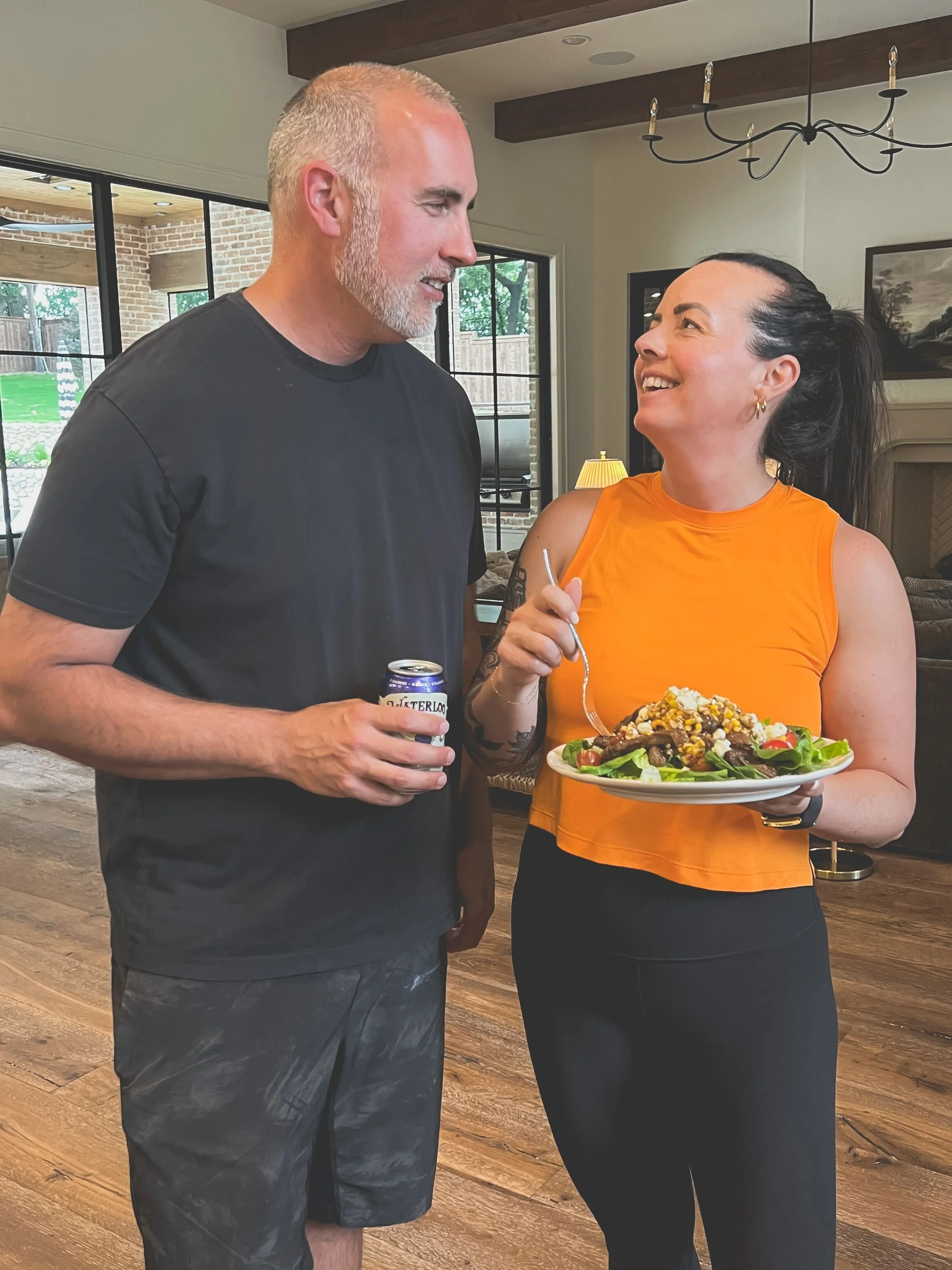So You Want To Eat Differently Than Your Partner or Family
In this blog post, we’re unpacking insights from our latest episode of Black Iron Radio, where coaches Krissy, Maggie, and Ryann tackle a common challenge: navigating your own nutrition goals when the people around you aren’t on the same page. Whether it’s your partner, family, or roommates, choosing to eat differently can stir up tension, judgment, or just plain logistical headaches. From setting boundaries and managing social situations to keeping your goals intact without isolating yourself, this conversation is packed with real-life strategies for honoring your own choices—without the guilt or drama.
BLACK IRON RADIO EP. 246: SO YOU WANT TO EAT DIFFERENTLY THAN YOUR PARTNER OR FAMILY
What happens when your goals don’t match your household’s eating habits? Krissy, Maggie, and Ryann talk about what it’s like to eat differently than your partner, family, or roommates – whether it’s because of macros, mindset, or medical reasons.
We dive into what it means to advocate for yourself, how to handle unsupportive environments, and why your food choices are nobody else’s business. We share personal experiences, client stories, and advice for navigating everything from unsupportive partners to picky kids, awkward holiday dinners to full-blown food allergies.
If you’ve ever felt like the “high-maintenance” one at the table, this one’s for you.
📲 Listen & Subscribe: Apple Podcasts | Spotify
Whether it’s your partner, your kids, or your entire family, eating differently than the people you share meals with can feel like an uphill battle. Sometimes you’re doing it for health or performance goals. Other times, it’s because of a medical condition or food intolerance. Either way, it can get complicated.
At Black Iron, we coach clients through this situation all the time. And most of us coaches have personal experience navigating it too.
When It’s About Goals (Not Allergies)
When you have a medical reason—like celiac disease or a serious allergy—people generally take your food choices more seriously. It’s a hard stop: “I can’t eat that.” But when your reasons are performance-driven, body composition-related, or part of healing your relationship with food, it gets murkier. People might project their own insecurities, judge your choices, or try to poke holes in what you’re doing.
Here’s the deal: whatever your reason, your plate isn’t anyone else’s business.
If you’re eating more protein, tracking macros, or avoiding alcohol, it doesn’t mean you’re judging anyone else. But folks love to take it personally. The best thing you can do? Communicate clearly, stand your ground, and remember—it’s their stuff, not yours.
When You’re the Odd One Out
It’s one thing to order something different at a restaurant. It’s another when someone else is doing the cooking. Whether it’s your partner making meals at home or a family holiday where Aunt Debbie brings her famous lasagna, it can feel awkward to ask for what you need.
We tell clients this all the time: you’re not a burden for having goals.
Maybe your partner can make slight tweaks, like serving the same base meal with different portions or toppings. Maybe you take charge of certain meals and let dinner be a free-for-all. Maybe you bring your own food to Thanksgiving. Whatever the setup, owning your choices and communicating them respectfully makes all the difference.
Support Systems Matter
Not everyone is lucky enough to have a supportive household. If your people don’t get it (or refuse to get it), that’s hard. But that’s why working with a coach can be so impactful—because you’re not doing it alone.
At Black Iron, we’ve seen every situation under the sun. We help our clients come up with strategies to navigate unsupportive environments, picky eaters, and complicated food dynamics. That might mean planning around family dinners, finding middle-ground meals, or just having someone in your corner when no one else gets it.
If It’s a Medical Thing…
Celiac disease, dairy intolerance, peanut allergies—you name it, it changes the game. You’re not just making a lifestyle choice. You’re managing a condition. And yes, people still might not take it seriously.
Cross-contamination, ingredients hidden in sauces, family members who “try their best” but still miss the mark—it’s frustrating. Sometimes the best solution is just to bring your own food and not make it a big deal. And if you’re dealing with something that could land you in the ER, like a peanut allergy, clear communication is non-negotiable.
Over time, you get better at navigating it. You figure out how to travel, how to eat out, how to set up your kitchen. You’ll probably still have to explain yourself more often than you’d like—but that’s the reality.
Final Thoughts
Whether you’re avoiding gluten for medical reasons or dialing in your nutrition to feel your best, it’s okay to eat differently. Communicate your needs, be flexible when you can, and don’t let someone else’s discomfort derail your goals.
And hey—if your family doesn’t get it? That’s what we’re here for.
🎙️ WANT MORE? SUBSCRIBE TO BLACK IRON RADIO!
If you enjoyed this conversation, check out more episodes of Black Iron Radio, where we cut through the noise and give you real, no-BS advice on feeling, performing, and looking your best. Each week we share practical nutrition, training, and wellness strategies and tips to help you succeed.
📲 Listen & Subscribe: Apple Podcasts | Spotify


